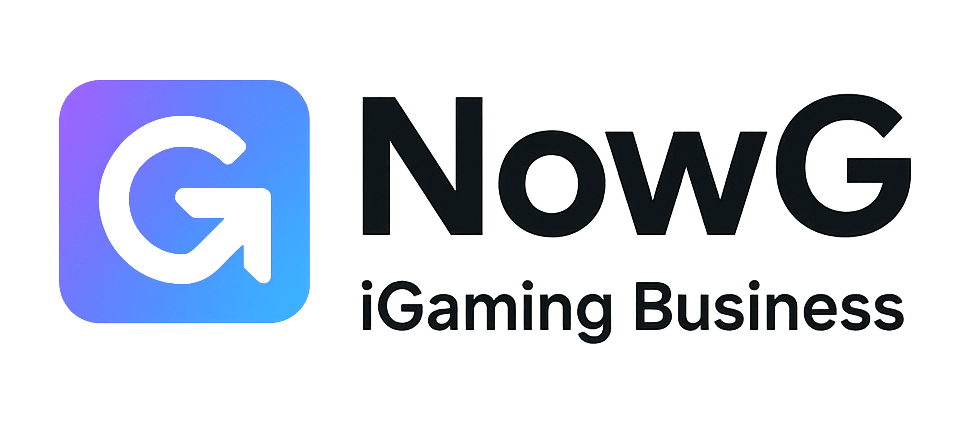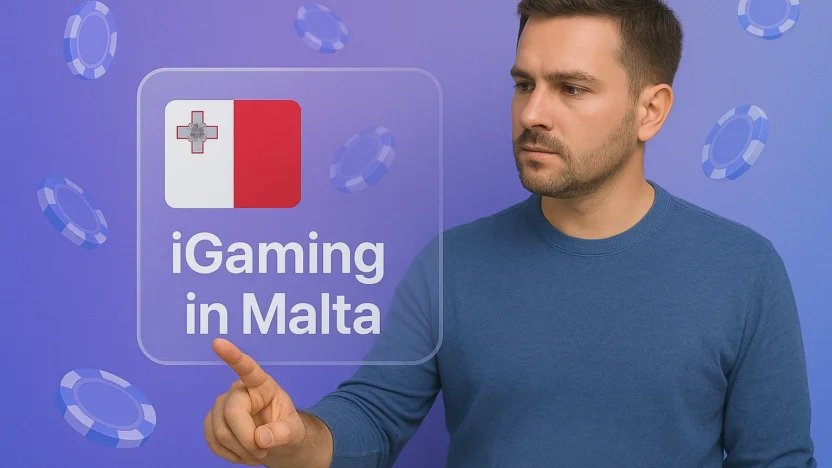Last Updated on November 19, 2025 by Caesar Fikson
iGaming in Malta in 2026 is a story of scale meeting specialization. You’re operating in a hub where live dealer capacity, B2B studio density, and senior compliance talent sit within a few square kilometers—and where macro signals still point up. Europe’s online segment has crept toward parity with land-based (online accounted for ~39% of total European GGR in 2024), and Malta’s own sector keeps punching above its weight in national value-add. If you care about CAC-to-LTV, throughput, and time-to-market, Malta remains a pragmatic base—provided you pick the right license path, vendors, and analytics discipline.
Check out EGBA/H2 data & MGA 2024 report
We at NowG write this for decision-makers—operators, B2B vendors, and advanced affiliates—who measure success in cash flow, not blog traffic. You want a candid, operations-first map of Malta’s iGaming landscape with clear guidance on where to push next. Let’s get practical.
Why Malta still matters
Malta offers three advantages you can actually feel in your P&L: a license framework that scales across product types, a dense technical and studio ecosystem (live casino, slots, risk tech, payments), and a workforce that understands iGaming’s peculiarities—bonus liability math, stream latency, fraud patterns—without a three-month onboarding saga. The result for you: faster integrations, cleaner audits, and fewer “Friday night” surprises.
Signals back this up. The MGA’s latest annual report shows the sector’s direct contribution to national output sitting just under the ~7% mark in 2024, with steady supervisory activity and a predictable pipeline of new and renewed licenses—healthy signs of a maturing, not stagnating, hub. Source
💡 Pro tip: Don’t pick Malta just for a badge. Pick it to shorten time-to-first-deposit in new markets via partner recognition, ready talent, and B2B supply density you can swap in and out without re-architecting.
What “iGaming in Malta” actually includes
For clarity, when we say “iGaming” here we mean online casino (video slots, jackpot games, roulette games, blackjack games, poker games), sports betting, lotteries, crash games, and live dealer games—plus the platforms, wallets, and B2B stacks that make them work. Your day-to-day reality in Malta is less about brand romance and more about operational tempo: switching on providers, pacing CRM, and keeping risk models one step ahead of bonus abuse.
License model: simple on paper, nuanced in practice
Since Malta’s 2018 reform, you’re looking at two core licence classes: a B2C Gaming Service Licence (products grouped under “game types”) and a B2B Critical Gaming Supply Licence. The “Type 1–4” labels are not separate licences anymore; they’re game-type approvals under your B2C licence—handy if you plan to expand from slots into, say, fixed-odds betting or peer-to-peer poker without relaunching your regulatory life. The key is sequencing: plan your product roadmap and lock your game types early to avoid rework.
| Game type | Examples | Typical use |
|---|---|---|
| Type 1 (house, RNG) | Video slots, blackjack, roulette, baccarat, virtual sports | Core casino; fastest time-to-content; deep studio choice |
| Type 2 (house, event) | Sportsbook, fixed-odds, spread betting | Cross-sell from casino; strong CRM hooks on fixtures |
| Type 3 (P2P) | Online poker, betting exchange | Community-led retention; rake-based economics |
| Type 4 (skill) | Fantasy sports / skill games | Niche engagement; requires distinct UX education |
Thinking B2B? The B2B licence is what lets you supply games or critical platform components to B2C brands. It’s popular with studios and platform vendors based on the island—and it’s what powers your ability to swap in Pragmatic Play, Playtech, BGaming, Evolution, or Ezugi with fewer frictions once your contracts are sorted. :contentReference[oaicite:1]{index=1}
Studios and content: curate, don’t hoard
Malta remains a real studio hub. Evolution runs significant live-dealer operations here; Playtech, Pragmatic Play, BGaming, and Ezugi all maintain strong footprints across the island’s B2B ecosystem. You’re spoiled for choice—but choice is a trap if you turn your lobby into a catalog. Curate your casino game categories to the session you want: fast-repeat engagement with crash games and lighter slots; deep dwell with live blackjack and roulette; calendar anchors with networked jackpot games. The right gaming portfolio—backed by data, not gut feel—beats “more titles” every time. :contentReference[oaicite:2]{index=2}
How we see it work best: Pragmatic Play for pace and breadth in video slots; Evolution Gaming and Ezugi live games for table authenticity and advanced streaming technology; BGaming games for agile theming and collaborations; Playtech casino games for feature depth and reach. That mix gives you tempo control without confusing the user.
Tech stack: speed, stability, and clean data
Your users never see your stack—they feel it. In 2026, a Malta-ready build prioritizes four levers: real-time event streams (for bonus throttle and next-best-action), content aggregation with sane SLAs, a user-friendly casino software front end that behaves on mid-range Android, and live-stream pipelines that don’t buckle on Friday primetime. Tie it all to a CDP or analytics layer that measures time-to-first-spin, table-switch latency, and mission completion—three metrics that forecast revenue better than any vanity ratio.
| Capability | Operator outcome | Affiliate outcome |
|---|---|---|
| Real-time attribution | Bonus burn control, value-based bidding | Cleaner EPC, fewer disputes |
| Live-stream quality | Stable RTP feel; fewer rage-quits | More confident promos on “moments” |
| Risk modelling | Lower chargebacks; faster KYC | Less clawback risk |
| Personalized lobbies | Higher session depth | Better post-click retention |
💡 Pro tip: On live dealer, monitor “dealer handoff dwell”—the % of viewers who stay through a dealer change. If it dips, your stream consistency or table rotation is off. Fix that and your churn calms down.
Talent and hiring: the silent bottleneck
The sector’s biggest constraint in Malta isn’t bandwidth—it’s people. The MGA’s skills reporting shows persistent hiring pressure across operational roles (risk ops, CRM, payments) and mid-management. Translation for you: factor in extra runway for recruiting, and build SOPs so your seniors aren’t firefighting every weekend. MGA skills gap snapshot
Regulatory climate: firm but navigable
This isn’t a compliance treatise—we’ll keep it to the bits that shape your strategy. Malta’s framework remains predictable for well-run brands: clear game-type definitions, collaborative supervision, and a long history of cross-border operations. You’ll still need to localize product and marketing to each target jurisdiction, but Malta’s licensing gives you a credible backbone while you sequence market entries.
One note to track in your legal briefings: the EU’s ongoing scrutiny of Malta’s 2023 amendment (often referred to as “Bill 55”), which concerns how foreign civil judgments against Maltese-licensed operators are recognized domestically. You should already be scenario-testing with counsel, but for day-to-day operations the immediate focus remains unchanged—operate clean, document everything, and keep your audit trails tight. :contentReference[oaicite:3]{index=3}
Operator playbook for 2026
Let’s be blunt: the winners aren’t “the biggest”; they’re the ones who ship faster, curate sharper, and measure what matters. If you’re building from Malta, anchor on four motions—content pacing, CRM discipline, live reliability, and clean partner economics. Affiliates have grown up; your contracts should too (shadow-model attribution before any switch, then repaper). Your internal dashboards? One exec board focused on cash (NGR, bonus liability, contribution margin), one product view focused on latencies, crashes, and lobby click maps. When those trend green, revenue follows.
Hypothetical scenario: the “quiet” Malta relaunch that moved the needle
Picture this: you’re a mid-market operator with stable traffic and a noisy lobby. Live tables are buried, jackpots don’t have a narrative, and crash sits next to roulette with no onboarding. We at NowG come in for an eight-week fix. We re-merchandise your lobby by player intent (new, value, VIP), pull 40% of low-traction slots, and spotlight live dealer with event-driven tiles (multipliers, streaks, “last 10”). We introduce mission-driven education (“Place a split bet,” “Trigger a feature spin”) with soft rewards, and wire a CDP that listens for table-switch latency and mission completion. Affiliates get fresh post-click flows tied to learning outcomes instead of generic reloads. Result? Same media budget, 14% lift in session depth, 11% more first deposits converting to second, and a quieter risk inbox. That’s Malta’s ecosystem doing what it does best—letting you iterate in public without chaos.
Malta vs. your other hub options (quick reality check)
| Hub | Live & studio density | License perception | Integration speed |
|---|---|---|---|
| Malta | High | ✅ | ✅ |
| Isle of Man | Medium | ✅ | ✅ |
| Gibraltar | Medium | ✅ | ◻️ |
| Curacao (reformed) | Low | ◻️ | ✅ |
To be frank, your choice often comes down to target markets, banking relationships, and partner comfort. If you need deep live capacity and B2B talent, Malta gives you fewer unknowns.
Content curation: an operator’s short list
For the Malta stack, we like a three-lane lobby: fast hit (crash, instant-win), table time (live blackjack & roulette with clear table-switch), and story beats (jackpots, themed events). Providers like Pragmatic Play, Playtech, BGaming, Evolution, and Ezugi cover these lanes cleanly—and yes, your results will hinge more on pacing and education than raw title count.
💡 Pro tip: Build a “learn-to-play” rail that sits above your lobby. Three screens max. Show volatility, RTP ranges, and “what a good session feels like.” You’ll cut post-click abandonment and support tickets in half.
Budgeting, briefly
We won’t quote line items here, but expect B2C compliance contributions and B2B fees to behave predictably, and plan for partner fees that reward outcomes rather than dump volume. Spend where latency is perceived (live, mobile input handling), not just where contracts are visible.
If you’re an affiliate or B2B vendor
Malta in 2026 is great for relationship-led business. If you’re an affiliate, build tools (calculators, RTP/volatility explainers, odds glossaries) and negotiate on value signals (first-touch discovery, mission completion) rather than pure last-click. If you’re B2B, show operators how you shorten time-to-value—faster certification, simpler APIs, cleaner reporting—and be explicit about how you’ll support Friday spikes.
Frustrated when a promising campaign flatlines for no obvious reason?
It’s usually pacing (too slow to first action) or context (wrong game for the traffic source). Fix those and your CPA mysteriously “drops.” It’s not magic—it’s sequencing.
What to watch next
Live game shows keep expanding; crash formats and novelty games spread because they compress time to excitement; and machine learning quietly moves from buzzword to plumbing in risk and CRM. The operators who win from Malta will be the ones who merge that tech reality with rigorous curation and transparent player education.
Final thought
Malta gives you the ingredients: a credible licence backbone, studio density, seasoned talent, and a regulator that expects professionalism. Your edge comes from how deftly you assemble those parts—curate, pace, measure, repeat. That’s how you turn a headquarters address into a durable advantage.
Try NowG’s free tools to prototype funnels, stress-test your onboarding, and sanity-check your live tables before you scale.
FAQ
Is Malta still a good base for iGaming in 2026?
Yes—if you value studio density, experienced talent, and partner recognition. The framework remains predictable for well-run brands, and the ecosystem shortens time-to-value.
What licences do I actually need in Malta?
B2C operators apply for a Gaming Service Licence and select game-type approvals (Type 1–4 categories). B2B suppliers obtain a Critical Gaming Supply Licence to provide games or platform components.
Which providers define the Malta stack?
For slots and tables, Pragmatic Play, Playtech, BGaming, Evolution, and Ezugi are common pillars. Your curation—not raw volume—drives engagement.
What KPIs predict revenue for Malta-based operations?
Time-to-first-spin, table-switch latency, session depth, bonus-to-NGR ratio, and fraud-score distribution. Track mission completion for education-led funnels.
How should I think about regulation changes?
Maintain clean operations and documentation. Monitor EU-level scrutiny of Malta’s 2023 amendment while focusing on day-to-day execution and audit readiness.
What’s the fastest way to improve Malta live results?
Stabilize streaming, declutter the lobby, and add mission-led education around tables. Measure dwell through dealer handoffs and fix rotation issues.
Do free tools help before a full platform build?
Absolutely. Use free tools to prototype flows, validate content pacing, and test post-click onboarding before you lock expensive integrations.




